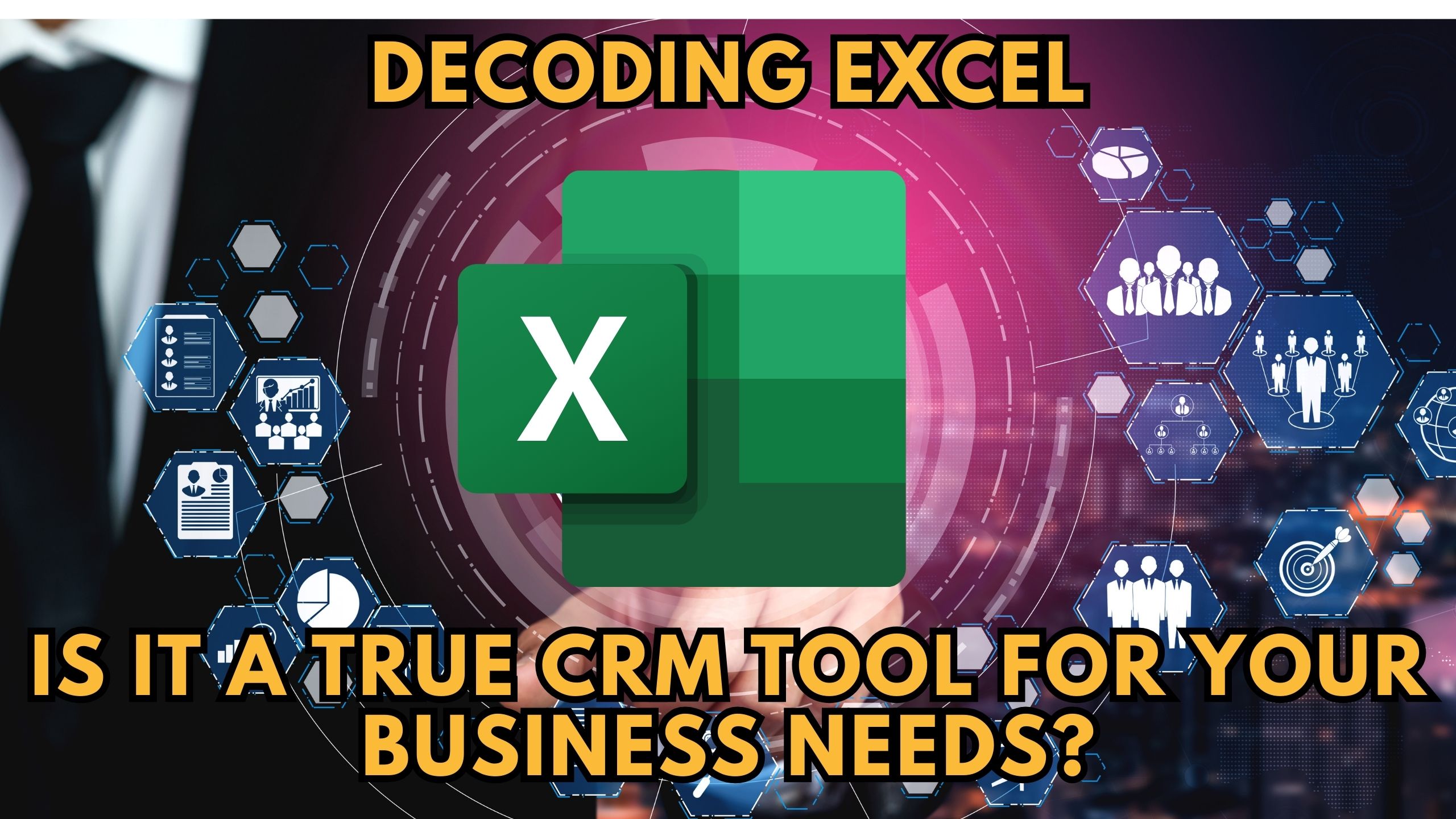Decoding Excel: Is It a True CRM Tool for Your Business Needs?
- Data as a Service (DaaS) Software Marketing & Analytics


Decoding Excel: Is It a True CRM Tool for Your Business Needs?
In the ever-evolving landscape of business management tools, Excel has long been a staple for organizing and analyzing data. However, when it comes to Customer Relationship Management (CRM), the question arises: Is Excel a true CRM tool for your business needs? Let’s delve into this query and explore the factors that determine the suitability of Excel for CRM purposes.
Understanding Excel’s Data Management Capabilities
Excel, with its spreadsheet functionality, offers a robust platform for organizing customer data. Businesses can create customized tables, input contact details, and track interactions. However, Excel’s effectiveness as a CRM tool is limited by its manual nature, making it challenging to scale for larger datasets and complex customer relationships.
Limitations in Automation and Workflow
CRM systems are designed not only to store data but also to automate processes. Excel lacks the automation features found in dedicated CRM tools, such as lead tracking, opportunity management, and automated communication. Businesses relying solely on Excel may find it cumbersome to manage and streamline their sales processes efficiently.
Collaboration Challenges with Excel
In a collaborative business environment, sharing and updating Excel files can become a logistical challenge. CRM systems offer centralized platforms accessible to multiple users, ensuring real-time updates and collaboration. Excel’s file-based structure may lead to version control issues, potentially hindering effective teamwork.
Scalability and Growth Considerations
As businesses grow, the limitations of Excel become more apparent. CRM tools are designed to scale seamlessly with a company’s growth, offering features like advanced analytics, integration with other business systems, and customizable workflows. Relying solely on Excel may impede a business’s ability to adapt to evolving customer relationship management needs.
Data Security and Integrity
Data security is paramount in CRM, where sensitive customer information is stored. Excel lacks the advanced security features found in dedicated CRM systems, which often include role-based access controls, encryption, and audit trails. Relying on Excel alone may pose risks to the confidentiality and integrity of customer data.
Relevant SaaS Products to Enhance CRM Capabilities
- Salesforce is a trailblazer in the CRM domain, offering a centralized repository of customer data and robust automation features to streamline interactions seamlessly.
- HubSpot CRM focuses on inbound marketing strategies, contributing to enhanced marketing efforts and customer engagement for businesses.
- Zoho CRM provides comprehensive solutions to optimize business processes, including sales management, task automation, and insightful analytics.
- Zendesk Sell specializes in customer support, ensuring efficient issue resolution and personalized support for enhanced customer satisfaction.
- Bullhorn is a specialized CRM tool for industries like recruitment and staffing, emphasizing effective relationship-building with candidates.
Conclusion: Choosing the Right CRM Tool
While Excel can serve as a basic data management tool, its limitations become evident when considering the comprehensive needs of CRM. For businesses aiming to navigate the complexities of customer relationships and emerge victorious in the competitive market, investing in dedicated CRM tools is imperative.
Unlock the Power of CRM with Subscribed.fyi
Empower your business with Subscribed.fyi, the all-in-one solution for understanding, comparing, and managing your SaaS stack. Sign up today to unlock exclusive deals, streamline subscription management, and gain insights that propel your CRM strategy to new heights.
Relevant Links:








